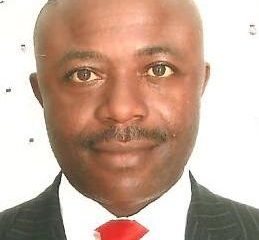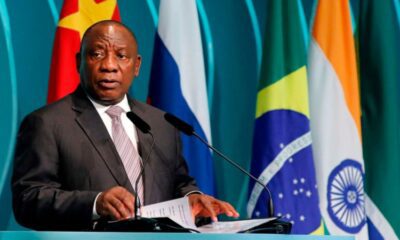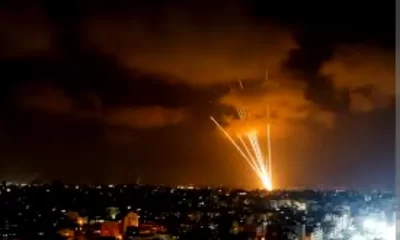National Issues
Nigeria, Shi’ite and the El-Zakzaky challenge -By Niran Adedokun
Government must also realise that no state currently has the monopoly of the instrument of cohesion and that bodies that feel oppressed in Nigeria can form international affiliations to jeopardise the peace of the country.
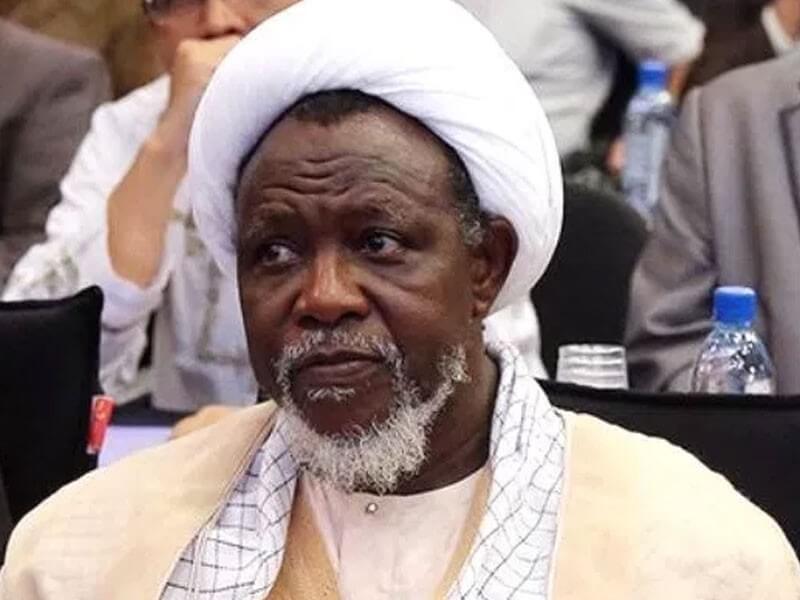
Things seem relatively calm on the endless altercation between the Federal Government and leader of the Islamic Movement in Nigeria, Sheik el-Zakzaky, currently.
Since the exchange of fireworks that followed the cleric’s return to Nigeria alongside his wife last week, both parties have taken what seems to be a well-advised ceasefire off the series of accusations and the counteraccusations that attended the cleric’s failed trip to India. The current peace the nation has from the three-year-old situation between the government and el-Zakzaky is indeed one that is heart-warming. However, how long this calm would last is a major concern for Nigerians who had imagined that the court ruling that granted him leave for a medical trip to India would bring significant improvement to the situation. But things have now moved from bad to worse.
After their arrival on Friday, a spokesperson for the IMN, Ibrahim Musa, released a statement wherein he hinted that the religious group was poised to resume public protests aimed at forcing the hands of government to release their leader.
Alleging that the government was bent
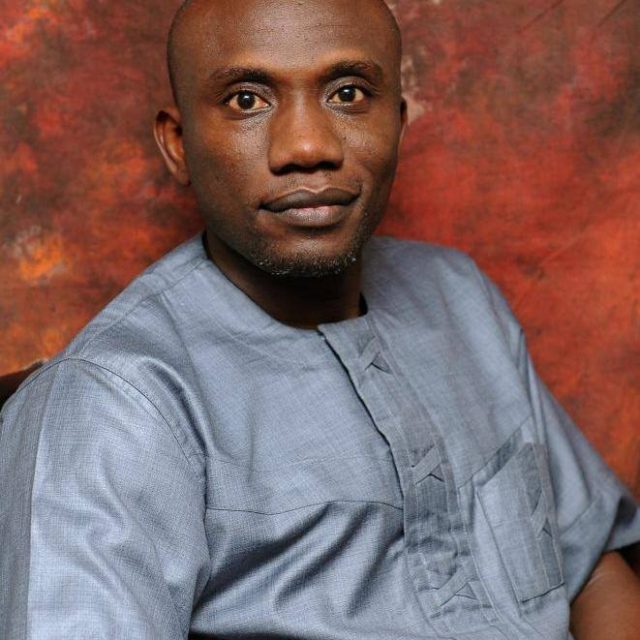
Now, anyone interested in the affairs of Nigeria would realise that the struggle that Musa talked about can bear no good fruit. Apart from the fact that the Buhari administration is becoming increasingly intolerant of dissent, which may see it resist such public protests with all possible force, the group itself is known to be defiant, even reckless and unperturbed by the massive arsenal of state. When two groups with such dispositions meet, there are grave chances that the country would be in a melancholic state for days to come.
Protests like the one Musa spoke about had in the past brought consequences that included the death of two people, a young journalist with the Channels Television, Mr Precious Owolabi, as well as the Deputy Commissioner of Police of the Federal Capital Territory Police Command, Mr. Usman Umar. Similar protests in the past had left sorrow, tears and blood in varying degrees and dimensions such that it is a prospect that the country should actively avoid.
But the government of the day seems to be in no mood for such a consideration. This, sadly, is a growing tendency which is frightening, and it is curious. While the fundamental duty of government is the maintenance of law and order, it is also the responsibility of government to ensure that the citizenry live in peace and harmony. And because of the importance of peaceful co-existence to the development of nations, government must be ready to exhaust every possible means of ensuring peace.
Like the husband who imagines his whole essence to be his macho endowment however, government deploys its full clout in the attempt to instil a sense of its authority in some citizens. Therefore, the authorities have failed to articulate comprehensive, once-and-for-all solutions to this IMN and so many other situations that Nigeria currently grapples with. On the contrary, what Nigeria has seen, despite the very predictable nature of some of these troubles, are reactive responses, which are usually in bits, tentative and only capable of making things worse.
Unfortunately, such measures would not work for a country of Nigeria’s population and complex diversities. From pre colonial Nigeria till date, ethnic and religious divisions have put one part of the country against another making transition from ethnic cleavages to citizenship difficult as a result of choices our leaders have made. As a matter of fact, there has been no time in contemporary history that Nigeria has encountered the measure of divisions that currently exists.
Above all, Nigeria has also faced an unrestrained erosion of values, poor leadership and elite mindlessness, which has created massive poverty and would make you wonder why political actors do not feel embarrassed by the level of underdevelopment that’s threatening to decimate an otherwise prosperous and potentially great country. All of these have further incentivised crimes, violence and insurgency across the country.
That is why government’s seeming arrogant approach to handling the El-Zakzaky is confounding. The truth is that no government no matter its strength can afford to confront multi-frontal social crises facing this country without diligence, strategic thinking, intelligence gathering and some well-measured, high level compromise. Without this, the pillars of social harmony will be destroyed, and democracy will be under siege as is beginning to manifest in Nigeria.
For instance, the Boko Haram insurgency that has claimed about 30,000 Nigerian lives and rendered millions homeless resulted from the bungling of an otherwise manageable situation. Those who witnessed the assaults inflicted on the soul of this nation and the population of the victims of the Boko Haram insurgency including our respected army generals, traditional rulers and young Nigerians mindlessly killed by these insurgents, would expect the government to put on its thinking cap in management of the El-Zakzaky irritation. But Nigerian leaders have not learnt any lessons from the festering problem that Boko Haram became with its handling of the IMN situation.
Unfortunately, letting the current situation get out of hand portends far more dangers than you would want to imagine. While Boko Haram, originated as a rag tag army of abandoned and devalued Nigerians with wobbled ideologies and a version of Islamism that’s both strange to Islam and bewildering to humanity, IMN is led by an El-Zakzaky who is cosmopolitan, elitist, sophisticated with some degree of global network mismanagement.
The complications are even more. President Muhammadu Buhari and many of those who advise him, belong to an alternative religious philosophy, a situation which already bears a conflict of interest and which should ordinarily inspire some caution.
The court order that granted the leave for foreign treatment for El-Zakzaky and his wife appeared to be an ice breaker for many observers. Unfortunately, both parties operated in bad faith and put up a lot of drama that put Nigeria to shame.
Yet, there is an urgent need to consider the quick resolution of this matter and reduce the spheres of tension in the country. There is of course enough evidence that members of the IMN have constituted themselves into a nuisance in Kaduna State where they are domiciled, a reason for which government must tackle their excesses.
However, the power of government is not just totalitarian but a bit of that accompanied by douses of diplomacy. True, there is the temptation for government to explore the enormous powers of the state in continuing to suppress agitations from the IMN and other such bodies, but in doing that, there is a lot of risk.
For instance, the courts have recently outlawed the group. Gratefully, the religious body has opted to fight the proscription in court. The danger of proscribing a religious movement of international nature like this is that they never die. And even when you can silence one leader, ten others who would who emerge would even be more fanatical.
Government must also realise that no state currently has the monopoly of the instrument of cohesion and that bodies that feel oppressed in Nigeria can form international affiliations to jeopardise the peace of the country. So, there should be subtle, not necessarily public means of engaging those who may want to steal the peace of the country. If government is focused on the development of the country, the peace of the entire nation would be priority, and nothing would be too little or big to sacrifice for peace.
Twitter: @niranadedokun



